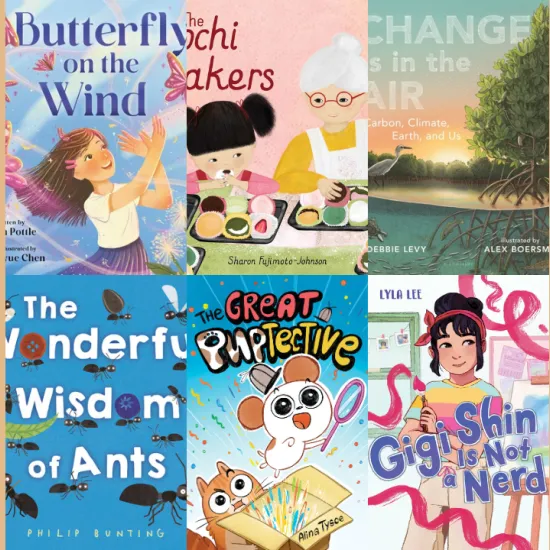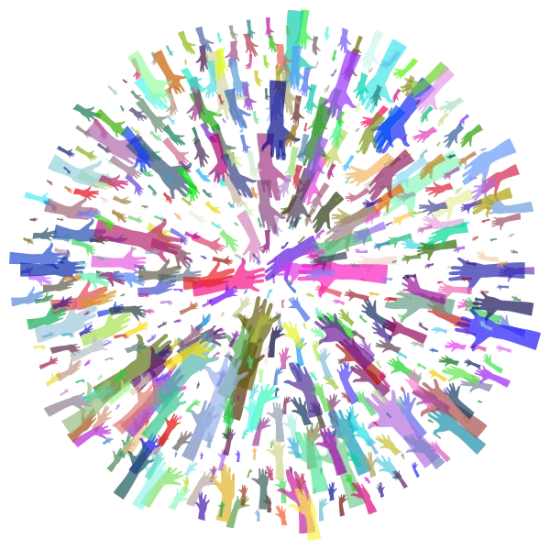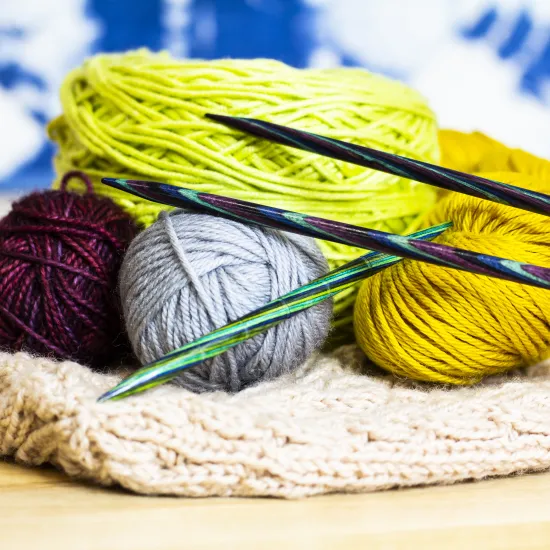- Phillip W.
- Friday, June 24, 2022
April is National Poetry Month! To celebrate, staff have been assembling booklists, interviewing poets, and examining some of their favorite poetry on our blog - you can take a look back at these entries here.
For this post, I spoke to Tammaka Staley, the library's current Artist-in-Residence, and the tenth AiR at Richland Library. She's a poet, spoken word artist and educator. We discuss her background, her approach to her work, and more below:
So, to start: Can you talk a little bit about yourself, and how you got into this work?
I initially got into poetry because of my mom; she was an avid reader and encouraged me to read as a child. Through her interest and encouragement, I encountered a variety of writing: mysteries, sci-fi, etc. Her love of music also provided inspiration. These interests combined into an interest in writing stories and rapping, which led to writing poetry. My first poem, “Gotta Get it Right Y’all”, was inspired by a poem called “Gotta Read the Label, Y’all”, by Geoffrey Johnson. It was an observed response to things I saw in my own community regarding issues like food insecurity and how census counts affect resource allocation. I performed this poem at a poetry slam in 8th grade and won the competition. From there, the rest is history. I was asked to perform in other venues and competitions. As I went along, I found more influences in places like Def Poetry Jam and began to realize that this was a passion and something I wanted to do for a living, including activism and community in my creative process.
You mentioned being inspired by another poet’s work. Was this encounter (with Geoffrey Johnson’s poem) a moment of epiphany, where you thought “I want to do that - I want to write poetry”, or was this realization more of a process?
Yeah, it really happened in that moment. I had done some writing earlier on – and read other poets’ work in front of an audience - but hadn’t had the spark to perform my own work before. That poem (“Gotta Read the Label, Y’all”) inspired me to both write and perform my own work. I remember as early as elementary school, performing Langston Hughes as a part of plays and monologues. Later, performing and writing my own work helped me really define my own style and find my own voice.
Right now I’m experimenting with different forms of poetry – studying and learning to use form. Narrative poetry is my safe zone, but I am working to use other forms as vessels to express meaning and feeling.
What artists/poets inspire you?
Roya Marsh, who I’ve previously worked with in a poetry workshop. Alyesha Wise-Hernandez. Zora Neale Hurston. Langston Hughes, who I mentioned earlier, has been an influence/inspiration early on and continues to be.
The poet Marvin Hodges, specifically the poem “Genes”, has stuck with me recently. This poem demonstrates how an extended metaphor can structure the course of an entire poem. Sha'Condria iCon Sibley. James Baldwin. Audre Lorde. Marsha P. Johnson’s work as an activist and as an artist inspires me in my work as well.
Can you give us an overview of your poetry?
I’d describe my genre as Afro-surrealism. I’m interested in relaying the experience of Black folk, particularly of Black women, femmes, and non-binary folk living in the South, and the full range of that experience - both the hardships and the joys.
The biggest thing I want people to take away from my work is ways they can unlearn, re-learn, and re-create norms. That is what I want people listening to my work to be challenged to do. My work is to imagine a world (and be a catalyst towards a world) in which all Black folks are thriving, creating a legacy of intentionality, radical justice, and healing.
What do you see as the role of the artist within the community? Or, another way to say it: how do you see the role of your own art within the context of the overlapping communities that you’re a part of?
Broadly speaking, all artists have a responsibility to enlighten – meaning, they should bring some kind of different perspective. Whether that’s because those others don’t have the platform, or because you can help cast something in a different light. Part of your role is being self-critical: thinking about your own art might be received. My role as an artist is to educate and inspire and to hold people accountable, including myself.
So you see your art as more than a vehicle for self-expression, as having a kind of polemical function?
I do – things look different, depending on where you’re standing, right? I feel that I have an obligation to speak the truth as best I can see it from within the communities I am a part of. I want to say the things I know people are thinking but won’t say.
What’s an example of that?
Well, for example – who's included in our retelling of our own history? If we think about a recent example - Women’s History Month - we can see examples of this: who gets included, who gets left out, and why? Why is it that the ideas of Black trans women, Black disabled folks, gain traction but their names and stories remain untold?
A lot of times poetry/language arts in general is viewed as difficult or overly academic. Where do you think this perception comes from, and what can artists and institutions do to change this perception?
The institutions, and the institutionalizing of poetry, I think, has a lot to do with this perception. The way it is presented and taught. The first poets I was ever taught were Emily Dickinson and Robert Frost; I enjoyed these poets, but I didn’t connect to their work. I had been exposed to other poetry and knew what kind of work I connected with and wanted to write.
I think poetry’s perception suffers a lot from narrow ideas about what poetry is, from often offering a small view onto what is, in reality, a wide field.
To answer the second part of the question: Being true to my own voice! Not being afraid to incorporate activism and all my other passions. Being specific, embracing emotion and anger. Right now, many people are sad, hurting, and frustrated. What better way than for your art to reflect that?
Tammaka Staley performs during the "1 or 2" socially distanced performance series, which was started in April 2020 to connect Columbians with local artists during the pandemic, and to give those artists a chance to get a paycheck when such opportunities have become more rare.
Our Artist-in-Residence program was created in 2015 to support artists, performers, and makers of all types and disciplines. The program gives artists the ability to work freely in their own studio space within the Main library, share their works and artistic process with the community, and provide learning opportunities and art programs for library customers.
Connect with Tammaka and learn more about her residency, here.


